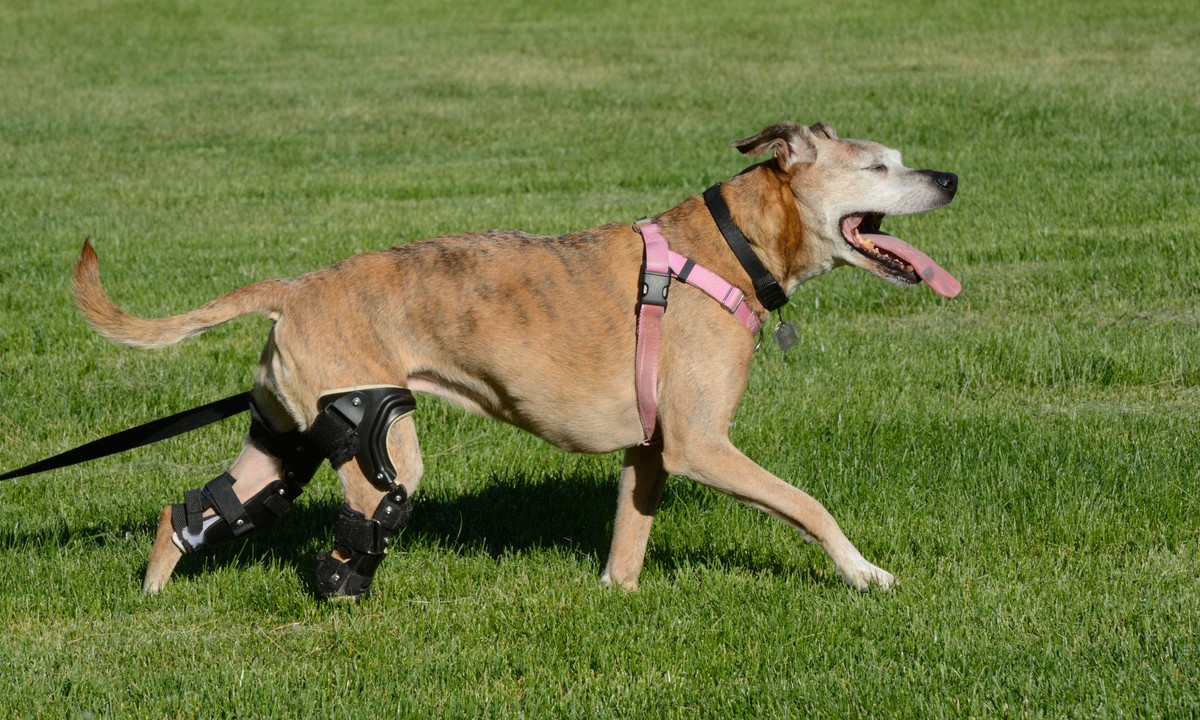What Should You Use to Help Heal Your Dog’s Knee Injury?

A knee injury is painful and unpleasant. While many dogs live long happy lives without any ailments, it is not uncommon for dogs to struggle with knee and hip problems. In this guide, we look at the best ways to prevent, as well as treat, knee injuries in your pup.
Risk Factors for Dog Knee Injuries
Although larger dogs are more prone to developing knee and hip-related injuries, small dogs can experience them too. Large dogs such as Labrador Retrievers, Saint Bernards, Rottweilers, Newfoundlands, Staffordshire Terriers, and Chesapeake Retrievers are just some of the breeds that are more prone to experience cranial cruciate ligament tears. Small breeds such as Chihuahuas, Yorkshire Terriers, Pomeranians, and Miniature Poodles are more likely to develop patellar luxations where the kneecap shifts from its natural position.
The chronic onset of knee injuries in dogs can also be related to age, poor muscle conditioning around ligaments, obesity, spayed female, or bone structure abnormality.
How to Recognize a Knee Injury in Your Dog
If your dog is experiencing knee problems, you will notice that they display discomfort by adjusting normal movements. They may be limping on the affected leg or holding the limb off the ground when standing.
Some dogs will limp or have difficulty getting up. If your pup looks like they are walking on eggshells or performing a skip when they move, it’s best to have their knees checked out by a vet.
How to Prevent Knee Injuries in Your Dog
In the same way that trying to run a marathon without any training would most likely cause you injuries, your pet pal’s exercise limits need to be considered, especially as they age. If your dog is on in years, avoid high-impact activities and aggressive games.
A joint supplement for dogs is also recommended, especially in older dogs. Products that contain glucosamine, chondroitin, and MSM are most beneficial for promoting healthy joints.
Maintaining a healthy weight for your pup is crucial to their well-being. Adapt their diet to their activity levels and make sure they get a well-balanced, nutrient-rich diet.
How to Treat Your Dog’s Knee Injury
Some dogs may be able to get away with physical therapy to help them heal without surgery while others will need surgery to see any improvement. However, not all dogs are good candidates for surgery and that’s where dog knee braces are helpful.
Although a knee brace can offer support before and after surgery, it is just as useful in cases where surgery is not feasible or necessary. A brace should effectively stabilize the knee, and balance the dog’s hip and back to avoid injury on the opposite side. Reducing pressure on the knee will relieve pain, inflammation, and aid recovery.
Non-rigid knee braces can be helpful for dogs who have torn ACL, knee strains or sprains, and even arthritis. When using a dog knee brace, make sure to remove it when your pup is unattended and also when it’s bedtime to ensure the skin can breathe.
For the best recovery and prevention techniques, always consult your vet before implementing any changes.
